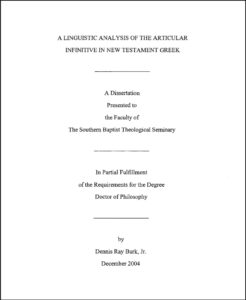Here is a slightly different kind of picture-based exercise from the online grammar. It presents pictures and asks the user to input an appropriate Greek word from a list of options. Here are the words for this one:
- καθαρός, -ά, -όν
- νέος, -η, -ον
- ἀσκός, -οῦ, ὁ
- σημεῖον, -ου, τό
- πράγμα, πράγματος, τό.
If you can look at each image and think of the appropriate Greek word without translating that word into English, you are on your way to acquiring Hellenistic Greek. If you have to translate the Greek words into English first, you have much more work to do.
Authentic language acquisition requires thinking directly in the language you are acquiring, without reference to your first language. That is very difficult to do with an ancient language, but not impossible.
The online Grammar at HellenisticGreek.com focusses heavily on translation because most people attempting to learn ancient Greek from the hellenistic period, the period of early Christianity, are learning the language to be able to translate the relevant early Christian documents into English or another modern language. If your goal is to understand those documents authentically, though, you need to do much more than learn the grammar and memorize vocabulary.
When I wrote that grammar in the early 1990s the practice of teaching Ancient Greek in Ancient Greek was barely beginning. If I were starting today, I would create a very different learning tool. To embark on the arduous task of completely redesigning the website and writing an entirely new grammar is more than I can possibly commit to at this late stage. I’m 67 years old now!
Instead, I have chosen the much more modest task of adding more authentic exercises to the lessons and producing materials for teachers to use in class to nudge instruction away from the focus on translation to include communicative tasks that support authentic language acquisition.
Simple exercises like the one above are not enough to do that, but they can serve as a push in the right direction. I have a lot more work to do in retirement!

 I have added Dennis Ray Burk’s doctoral dissertation “A linguistic analysis of the articular infinitive in New Testament Greek” to the
I have added Dennis Ray Burk’s doctoral dissertation “A linguistic analysis of the articular infinitive in New Testament Greek” to the  I would like to thank those of you who, over the last several years, have submitted suggestions for
I would like to thank those of you who, over the last several years, have submitted suggestions for 
